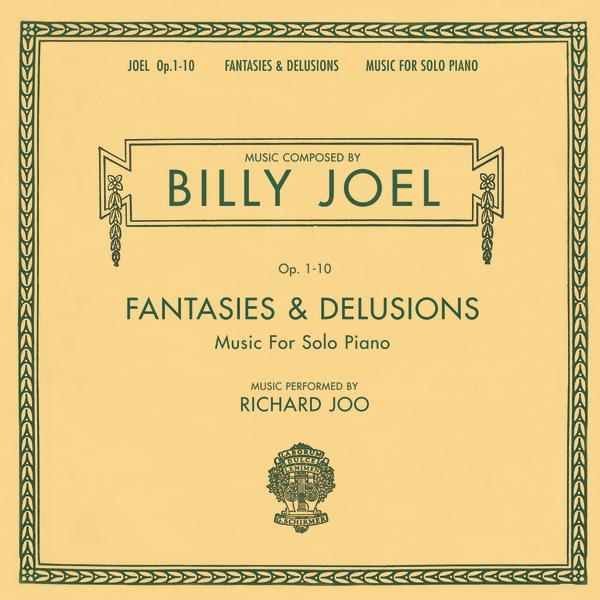
Fantasies and Delusions (2001)

1. Opus 3. Reverie (villa D'Este)
2. Opus 2. Waltz #1 (Nunley's Carousel)
3. Opus 7. Aria (Grand Canal)
4. Opus 6. Invention in C Minor
5. Opus 1. Soliloquy (On a Seperation)
6. Opus 8. Suite for Piano-I. Innamorato
7. Opus 8. Suite for Piano-II. Sorbetto
8. Opus 8. Suite for Piano-III. Delusion
9. Opus 5. Waltz #2 (Steinway Hall)
10.Opus 9. Waltz #3 (For Lola)
11.Opus 4. Fantasy (Film Noir)
12.Opus 10.Air (Dublinesque)
In the twilight of a remarkable pop career, Billy Joel did something profoundly uncommercial: he walked away. Not in scandal, nor burnout, but with an air of quiet finality. And then, rather than retreat into silence, he reemerged in a realm few expected—classical composition. Fantasies & Delusions, released in 2001, was his first full album since River of Dreams, and it bore not a trace of pop radio DNA. No vocals, no hooks, no chart-seeking ambition. Just piano, written by Joel, performed by British concert pianist Richard Joo.
To call the album unexpected would be to miss the through-line of Joel’s catalogue. Classical motifs had always hovered on the edges—found in the cinematic sweep of The Ballad of Billy the Kid, the arpeggiated shadows of Until the Night, and the orchestral melancholy of Where’s the Orchestra?. What Fantasies & Delusions represents is not a departure, but a return: to the music of Joel’s youth, to the concert hall ambitions that predated the dive bars and radio fame.
The pieces here are elegantly crafted, if occasionally derivative. There are nods to Beethoven and Chopin, to Debussy and Schumann, but the album rarely aims for reinvention. Nor does it need to. This is not a statement of brilliance so much as a gesture of reverence. Joel composes with melodic instinct rather than technical daring. The result is music that is accessible, sometimes overly so—lush, consonant, and, to the trained ear, perhaps a bit safe.
It must be said: Joel does not perform the work himself. That task falls to Richard Joo, who approaches the material with a dignified restraint. The playing is fluid, precise, emotionally tasteful—though one sometimes wonders what a less polished, more temperamentally idiosyncratic pianist might have drawn out of these compositions.
The challenge, of course, lies not in the writing or the performance, but in the listening. Unlike Joel’s pop work—songs that grab you in three seconds and don’t let go—Fantasies & Delusions asks for patience. It unfolds slowly. It resists familiarity. For many fans, it serves more as an ambient backdrop than an active listening experience. There is little to distinguish one track from the next unless you’re attuned to the shifts in phrasing and tempo. The album drifts, not unpleasantly, but without urgency.
Yet one must admire the integrity of the project. Joel, unlike so many legacy artists, didn’t release the same record in diminishing returns. He didn’t chase a late-career hit. Instead, he followed a personal muse into the pages of a very different musical tradition, knowing full well that most listeners would follow out of curiosity, not conviction.
Fantasies & Delusions is unlikely to become anyone’s favorite Billy Joel album. It lacks the immediacy, the wit, the pulse of his best work. But as a coda, as a quietly ambitious postscript to one of the most commercially successful songwriting careers of the 20th century, it possesses its own modest dignity.
This was never meant to sell stadiums. It was meant to say: the artist continues, even after the spotlight has faded.
Back To Main Page
Go To Next Review